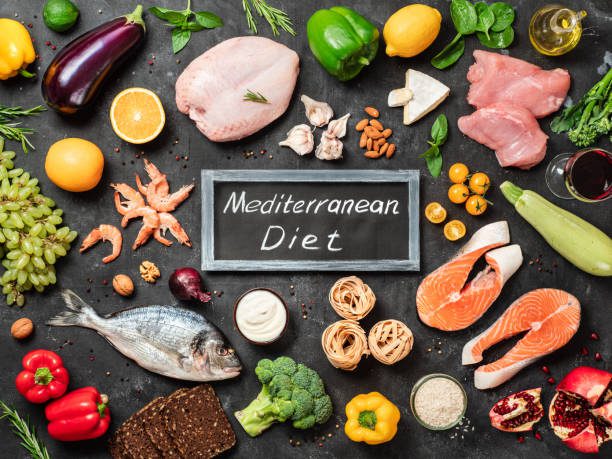⚠️ Medical Disclaimer
This content is for informational and educational purposes only. Always consult a qualified healthcare provider.
This content is for informational and educational purposes only. Always consult a qualified healthcare provider.
Last Updated on April 19, 2024 by Grace Oluchi
The Mediterranean diet will leave you feeling super healthy, trust me. In the U.S. News & World, it is reported as one of the healthiest diet patterns.
So, what is it about this diet that makes it so good for you? And is it possible to eat this way from your very own kitchen? Catch the deets now.
📋 Table of Contents
The Key Takeaway.
The mediterranean diet is more about the types of foods you’re eating and less about counting calories or trying to stick to a long list of unending diet rules. UGH!
What is the Mediterranean diet?
It is simple diet pattern, as you just eat more of traditional foods. That’s all. Very common with people who live in countries like Greece, Italy, and Spain.
Foods to eat.
What to eat on a Mediterranean diet?
- Fruits and vegetables.
- Whole grains like whole-grain bread, pasta, and rice.
- Legumes like beans, lentils, and chickpeas.
- Nuts and seeds like almonds, walnuts, and flaxseeds.
- Fish and seafood for a good source of omega-3 fatty acids.
- Olive oil: the primary source of fat in the Mediterranean diet.
Foods to avoid.
Foods to avoid on a Mediterranean diet?
- Sugar-sweetened beverages like soft drinks, fruit juices, and sweetened tea.
- Processed foods because they are usually high in sugar, salt, and unhealthy fats.
- White bread, pasta, and rice. They are refined grains and what you need are whole grains.
- Eat very little of red meat or stay away from it.
What are the health benefits?
- Lower risk of heart disease
- May reduce risk of strokes in women
- Improved brain and gut health
- Reduced cancer risk
Risks.
- The diet can be high in calories, which can lead to weight gain.
- The fats are healthy but can still lead to weight gain.
- Mediterranean diet is low in protein, which can affect you if you’re supposed to eat more protein.

